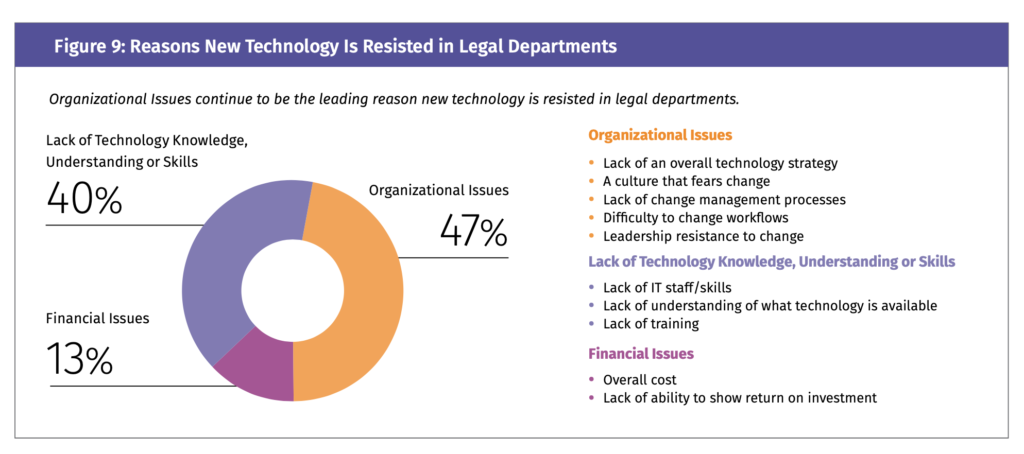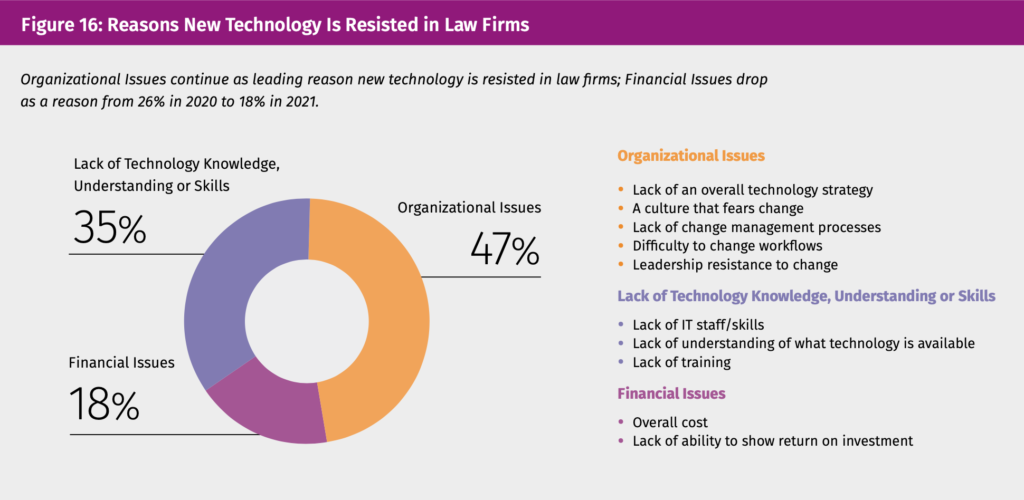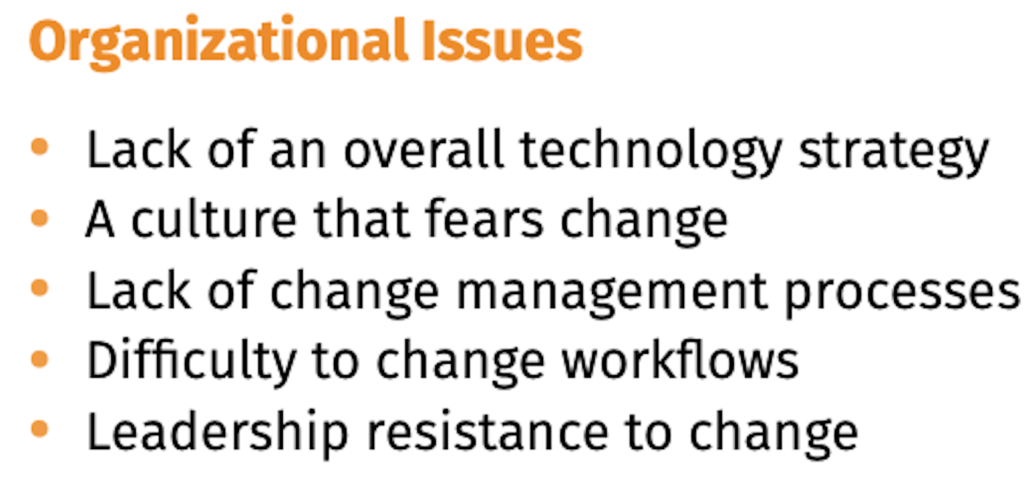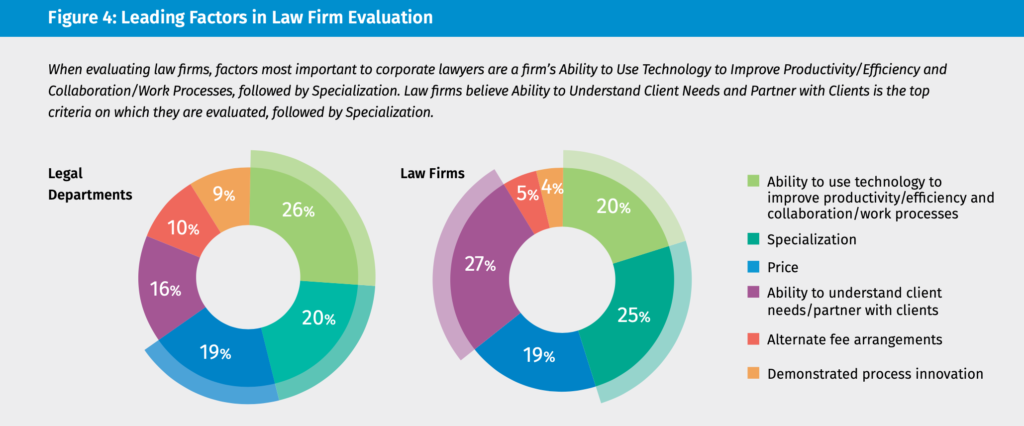
Wolters Kluwer has just published its latest Future Ready survey of the market. It’s got oodles of data, but the one thing that stood out was that it is organisational culture more than anything else that is holding back tech adoption – both inhouse and within law firms.
As can be seen in the tables below:

And….

Those issues are listed as:

Now, the balance of challenges will change from business to business, but this site’s guess is that it’s not so much about active resistance to change, but instead the sheer difficulty in changing workflows that have existed for many, many years. In some cases a junior lawyer might start doing a type of project in one way that then persists until they are a senior partner, or if inhouse, going all the way to becoming a General Counsel.
How can we expect lawyers who have evolved like this to suddenly drop what they are doing and pick up a new methodology – especially when the old way has generated lots of profits and/or helped them to advance in their careers? Of course, we should move forwards and change, but we also need to appreciate how hard that change is to make.
Those workflows in law firms have grown out of decades of use of the billable hour, of leveraging junior ranks to generate profits, and a general culture of ‘always being busy no matter what you are doing’. Many law firms are unpicking this culture and in some areas have done great work. But, this is not universal.
The same is true for inhouse teams, although here the billable hour is not part of it. But, the same constant ‘always busy’ culture is there, and the ability to just: stop – look around – and bring in real change, is very hard to do.
Few inhouse teams are really set up for running their own major change management projects. And that is understandable. Many companies probably don’t consider the fact that their inhouse legal team will need the same kind of internal change management capability that, for example, the business’s logistics team might have built into it.
Legal ops professionals have really helped. But many companies don’t have these types of specialists on the payroll, even if some of the giant ones do.
So, once again, it’s culture eats legal tech for breakfast. See earlier piece from Artificial Lawyer: ‘Culture Eats Legal Tech For Breakfast‘, from May, 2020.
P.S. financial issues were not a big barrier to change. As explored yesterday by this site, many large businesses don’t have a problem with the monetary cost of legal tech – they just need to understand the use case and to really feel a visceral need for a tech solution – which often they don’t. See: ‘Could Legal Tech Cost Less?‘.
But, on a more positive note, the survey also found that clients see the ability of law firms and other providers to operate efficiently as the top factor impacting their choice (see below) – which has to be said is a surprise – although a welcome one. Maybe things are finally changing….?

(For law firms, they believed it was their ability to provide subject matter specialisation that made the most difference.)
This suggests that efficiency is becoming a real differentiator among legal service providers now, and that’s great news.
Note: There is much more to the report, this is just part of it.
You can download the full report here.
Demographics: The report includes insights from 700 legal professionals across the US and nine European countries.